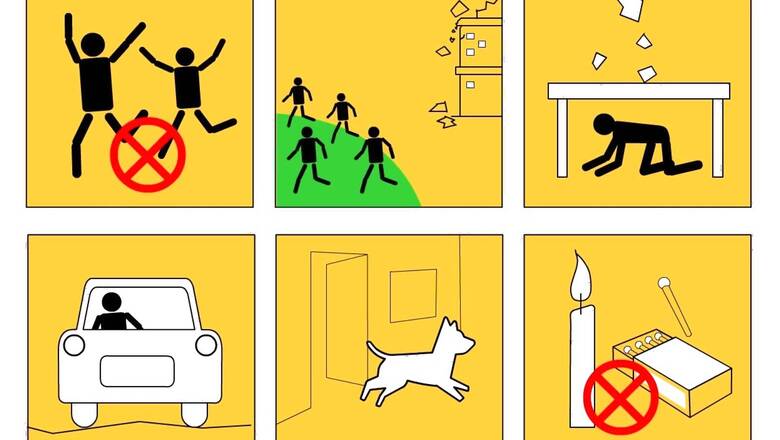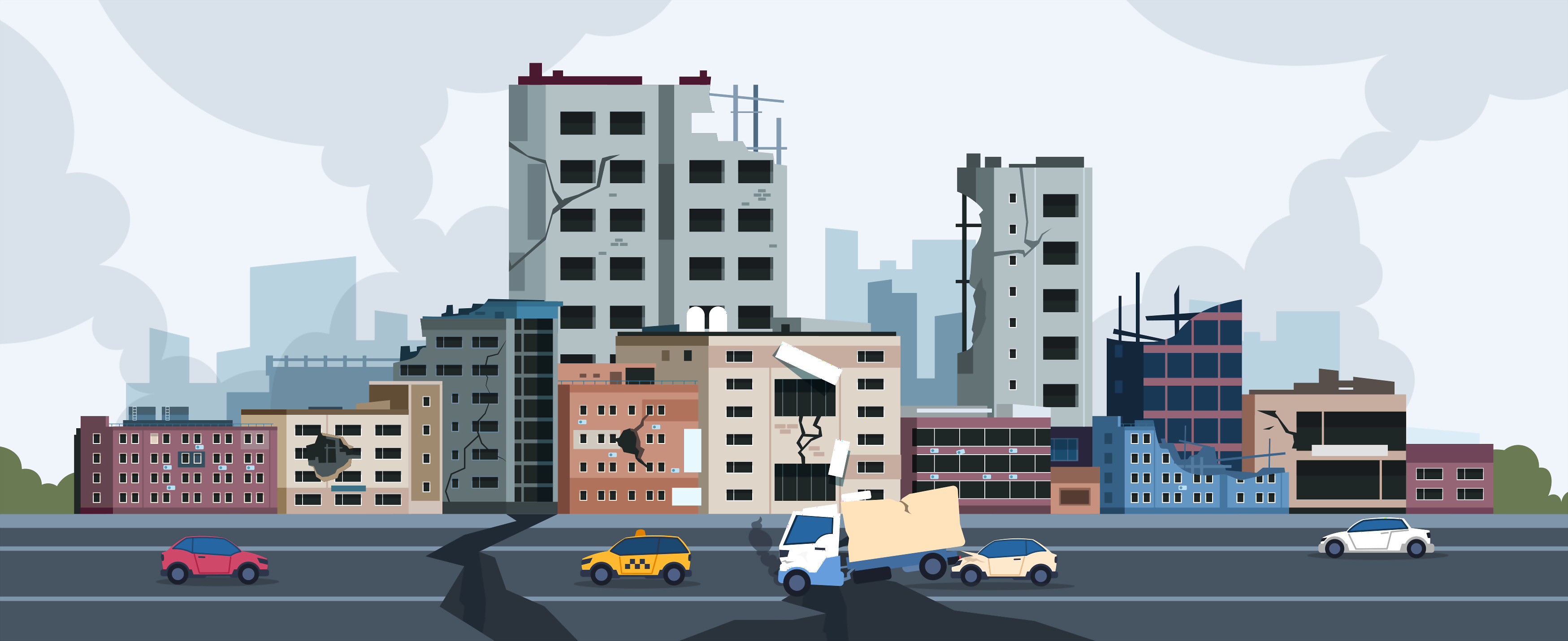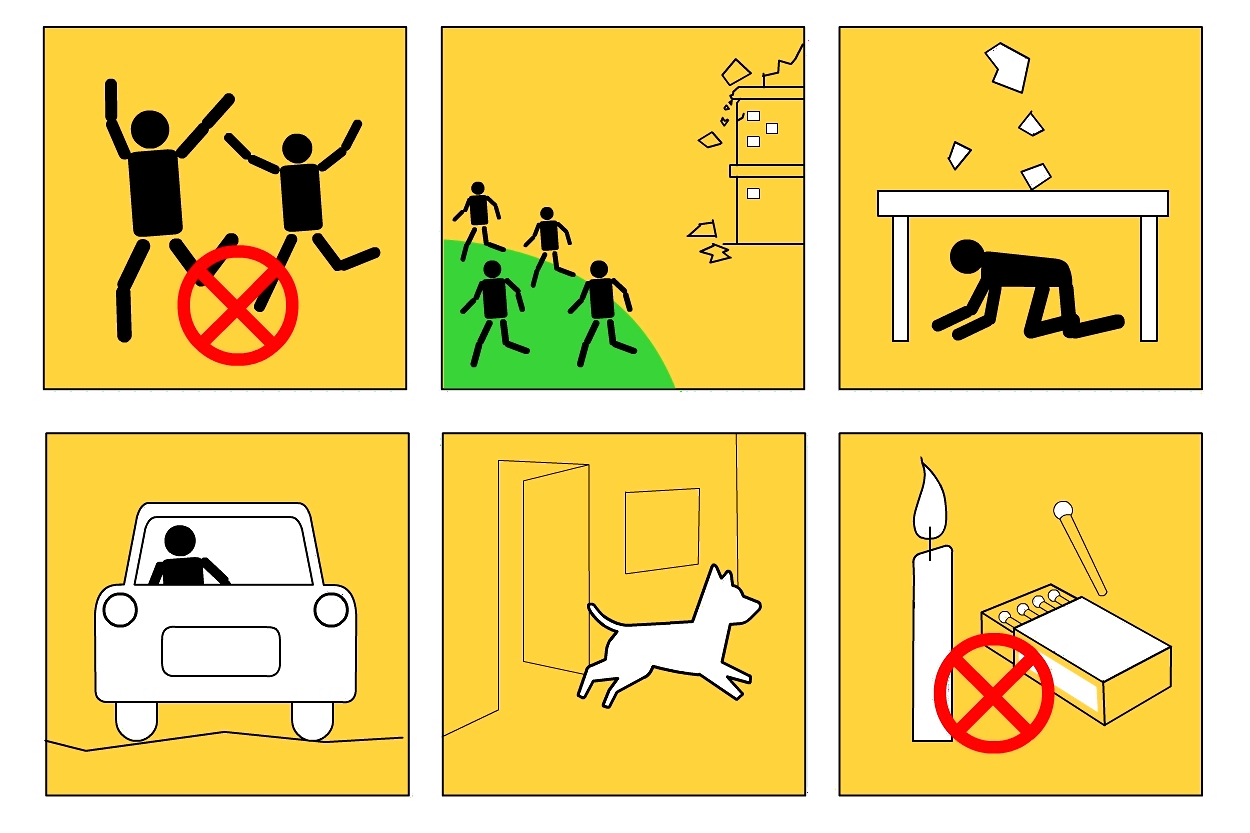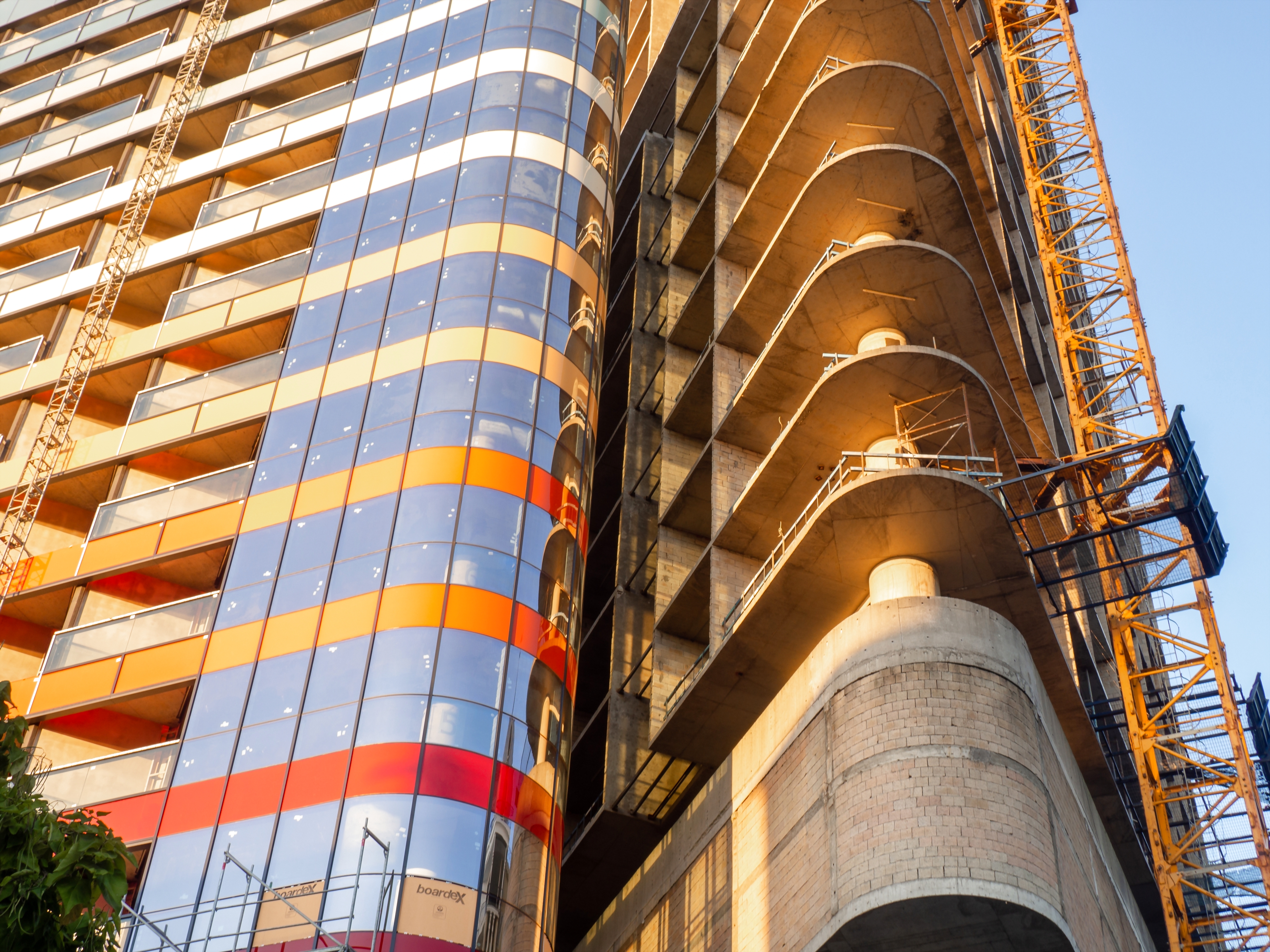
views
For those in the Delhi-NCR region and other parts of India who had either slept through or not felt the tremors of the earthquake that shook and killed six in Nepal, Wednesday morning brought a wave of alarm.
The earthquake, measuring 6.6-magnitude, occurred in western Nepal whose centre was Doti district, according to the National Earthquake Monitoring Center. Another quake measuring 4.1 magnitude had also occurred in the same district at 9:56 p.m on Tuesday. Rescue operations are on in the nation.
The development has beget some important questions: In the event of an earthquake, how should one protect themselves? What should you do if you’re in a high-rise building, tower, or outside or in a car?
News18 explains:
IN MOST SITUATIONS, HERE ARE SOME GROUND RULES THAT WILL PROTECT YOU:
GET DOWN ON YOUR KNEES BEFORE THE EARTHQUAKE knocks you down. This position keeps you from falling while still allowing you to move if necessary, the CDC explains in its list of Dos and Don’ts.
COVER your head and neck (and, if possible, your entire body) beneath a sturdy table or desk. If no shelter is available, get down near an interior wall or low-lying furniture that won’t fall on you and cover your head and neck with your arms and hands.
HOLD ONTO YOUR SHELTER (OR YOUR HEAD AND NECK) UNTIL THE SHAKING ENDS. Prepare to move with your shelter if the shaking causes it to shift.

Stay inside if you’re inside
• During an earthquake, DO NOT run outside or to other rooms. If you stay where you are, you are less likely to be injured, the CDC states.
Take the following precautions to reduce your chances of being injured:
• If possible, move away from glass, hanging objects, bookcases, china cabinets, or other large furniture that could fall within the few seconds before shaking intensifies.
• Free all pets and domestic animals so that they can run outside.
• Keep an eye out for falling objects such as bricks from fireplaces and chimneys, light fixtures, wall hangings, high shelves, and cabinets with swinging doors.

• Grab something nearby to protect your head and face from falling debris and broken glass.
• If you are in the kitchen, turn off the stove immediately and seek shelter at the first sign of shaking.
• Hold on to your bed and stay there, protecting your head with a pillow. You are less likely to be injured if you stay put. If you walk or roll onto broken glass on the floor, you may sustain injuries.
• DO NOT STAND IN THE WAY OF A DOOR. Under a table, you’re safer. Doorways in many modern homes are no stronger than any other part of the house. Doorways do not shield you from the most common source of injury, which is falling or flying objects, the US body CDC states in its guidelines. The majority of earthquake-related injuries and deaths are caused by falling or flying objects (such as televisions, lamps, glass, or bookcases), or by explosions.
IF IN A HIGH-RISE Building
• Drop, cover, and hold on if you are in a high-rise building.
• Remove yourself from windows and outside walls.
• Stay inside the structure.
• USE THE ELEVATORS AT YOUR OWN RISK. The power may go out, and the sprinkler systems may activate.
• Stay calm if you’re trapped. Tap on hard or metal parts of the structure to get someone’s attention. This may improve your chances of being rescued.

IF OUTSIDE, STAY OUTSIDE
• Do not move from where you are. However, move away from buildings, trees, streetlights, and utility wires, the NDMA states in its guidelines.
• If you are in open space, stay there until the shaking stops. The greatest danger exists directly outside buildings; at exits; and alongside exterior walls. Most earthquake-related casualties result from collapsing walls, flying glass, and falling objects.
If in a moving vehicle, STOP and STAY
• Stop as quickly as safety permits and stay in the vehicle. Avoid stopping near or under buildings, trees, overpasses, and utility wires.
• Proceed cautiously once the earthquake has stopped. Avoid roads, bridges, or ramps that might have been damaged by the earthquake.
If trapped under debris, what to do
• Do not light a match.
• Do not move about or kick up dust.
• Cover your mouth with a handkerchief or clothing.
• Tap on a pipe or wall so rescuers can locate you. Use a whistle if one is available. Shout only as a last resort. Shouting can cause you to inhale dangerous amounts of dust.
Read all the Latest Explainers here


















Comments
0 comment